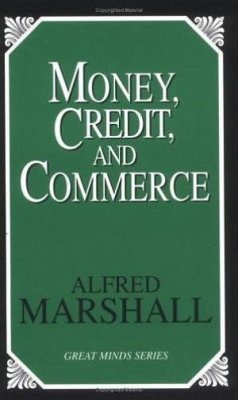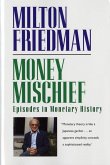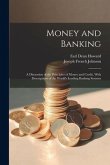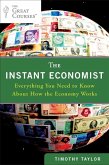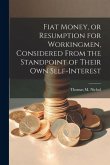Alfred Marshall (1842-1924), distinguished British economist and one of the founders of the neoclassical school of economics, established his reputation with the magisterial Principles of Economics (1890). That magnum opus quickly became a standard reference work, went through eight editions in MarshallÆs lifetime, and to this day is considered one of the classic economic treatises. Among his areas of expertise was monetary analysis, but he did not have the opportunity to publish a systematic presentation of his views until his later years. Money, Credit, and Commerce, devoted to this subject, was his last major work. Among the proposals made in this work for which he is most remembered is the adoption of ôsymmetalism,ö a plan for the combined use of gold and silver as the monetary base. Marshall also expressed his views on the relation of business fluctuations and the credit market to general unemployment. He saw reckless inflation of credit as the main cause of economic troubles. As the foremost British economist of his time, he influenced a later generation of economists. One of his most gifted students was John Maynard Keynes, who disagreed with some of MarshallÆs ideas, yet continued to refer to MarshallÆs contributions as essential groundwork. For students of economics and monetary policy Money, Credit, and Commerce remains a valuable book.
Bitte wählen Sie Ihr Anliegen aus.
Rechnungen
Retourenschein anfordern
Bestellstatus
Storno

